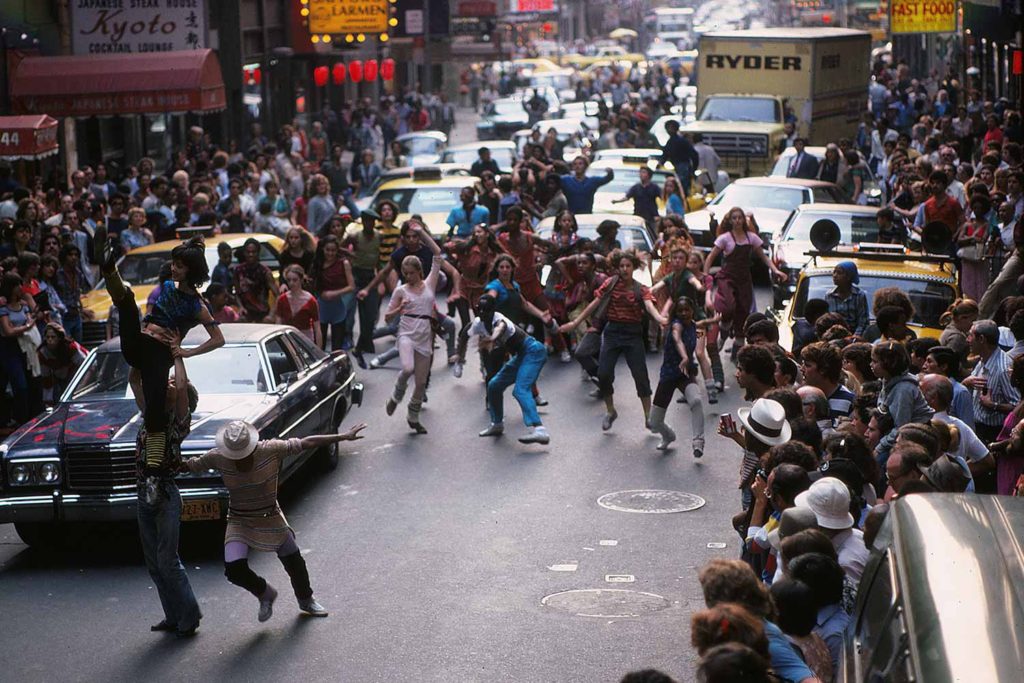
One common academic definition of poetry is that which cannot be summarized in prose. American author and theologian Dallas Willard claimed in The Divine Conspiracy that “sometimes important things can be presented in literature or art that cannot be effectively expressed in any other way” (78).
These ideas share the notion that genre matters and form matters. Spiritual significance is not merely about a film’s subject matter. Singing and dancing are attempts to add to words, to convey something that transcends their denotation and often expresses a glimpse of a transcendent world or truth that the performer has caught a glimpse of just beyond the view of those who focus only on the prosaic and the concrete.
The longing for transcendence, the absolute human craving for it, lies at the heart of Fame and of much great modernist and postmodernist art. It is seen in urgency with which meaning is sought and sadness that simultaneously embraces the moment and laments the finite.
At the crescendo of Fame‘s title song is a driving plea: “remember…remember…remember….” Life has barely begun for these students of a performing academy, and yet they already feel it slipping away. What can they do, what can any of us do, to ensure that we do not dissolve like vapor, to be thought of no more? Perhaps we believe that fame is sufficient to guarantee immortality, but ever since the book of Ecclesiastes (of the writing of books and making of movies there is no end) man has struggled with the insufficiency of those things we rely on most to sustain and nurture our souls.
Perhaps that is why Fame ends not with the title anthem but with a rousing chorus stealing the title of Walt Whitman’s “I Sing the Body Electric.” The communion with the transcendent (“and in time…we will all be stars”) that the soul seeks finds its promise of fruition in the ensemble — humans becoming one with one another in performance, the whole becoming more than the sum of its broken parts.
“I sing the body electric
I celebrate the me yet come
I toast to my own reunion
When I become one with the sun.”
You ain’t seen the best of me — of us — yet. Fame reminds us that the modernists’ sense of loss can be channeled into something more than disillusionment and lamentation. Rarely (but occasionally) it can drive us to a renewed search for transcendence, a revived commitment to something other than mere survival, until, after seeking, we find ourselves for the first time back where we began… — Kenneth R. Morefield (2022)
1, Directed by: Alan Parker
2. Produced by: David De Silva; Alan Marshall
3. Written by: Christopher Gore
4. Music by: Michael Gore
5. Cinematography by: Michael Seresin
6. Editing by: Gerry Hambling
7. Release Date: 1980
8. Running Time: 134 min.
9. Language: English
Arts & Faith Lists:
2022 Top 25 Movie Musicals